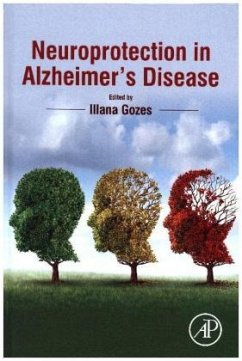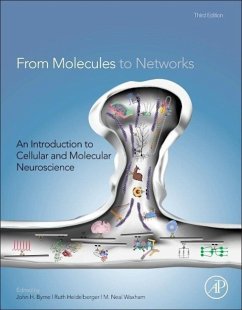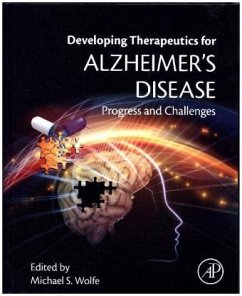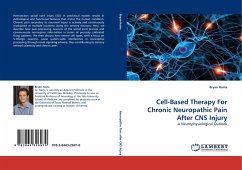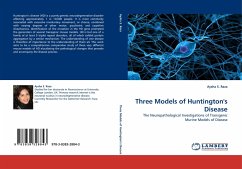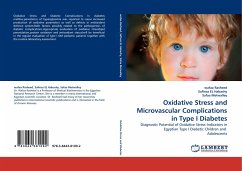
Astroglial cells are not just bystanders in Alzheimer's
Oxidative stress and Alzheimer's amyloid-beta peptide on astrocytes
Versandkostenfrei!
Versandfertig in 6-10 Tagen
32,99 €
inkl. MwSt.

PAYBACK Punkte
16 °P sammeln!
Oxidative stress produced by excess reactive oxygen species (ROS) has been implicated in the pathogenesis of brain injuries and neurodegenerative diseases including Alzheimer's disease (AD). Excess production and deposition of cytotoxic amyloid-beta peptide in brain is widely regarded as a major cause to the pathology of AD. All these factors increase the pathological astrocytosis in AD. We found that ROS affect cellular membranes and cytoskeletal organization. MAPK pathway had an important role in all these alterations due to ROS. Cytosolic phospholipase A2 (cPLA2), then, was shown to be the ...
Oxidative stress produced by excess reactive oxygen species (ROS) has been implicated in the pathogenesis of brain injuries and neurodegenerative diseases including Alzheimer's disease (AD). Excess production and deposition of cytotoxic amyloid-beta peptide in brain is widely regarded as a major cause to the pathology of AD. All these factors increase the pathological astrocytosis in AD. We found that ROS affect cellular membranes and cytoskeletal organization. MAPK pathway had an important role in all these alterations due to ROS. Cytosolic phospholipase A2 (cPLA2), then, was shown to be the downstream enzyme which mediates the membrane changes induced by ROS. ROS increased F-actin-dependent translocation of cPLA2. We also found that PLA2 plays important role in Abeta-induced mitochondrial dysfunction. Our study provided some meaningful insight into the mechanisms of how oxidative stress and Abeta on astrocytosis.



